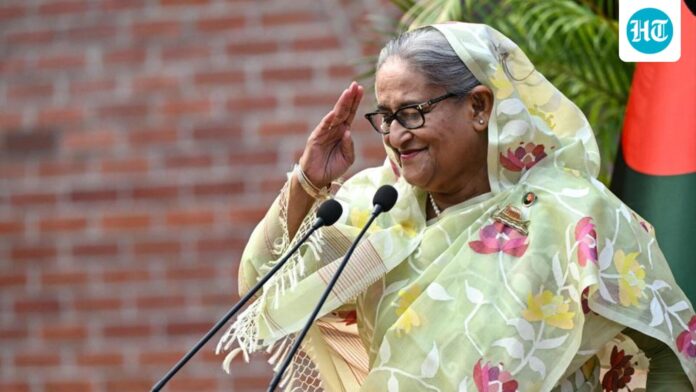New Delhi: Questions have arisen about the fairness of former Bangladesh premier Sheikh Hasina’s trial and sentencing by a domestic war crimes tribunal in view of a string of procedural and legal lapses, including changes to the scope of the court itself by the interim government, people familiar with the matter said on Tuesday.
The International Crimes Tribunal (ICT) on Monday handed down the death sentence to 78-year-old Hasina for ordering the use of lethal force while cracking down on student-led protests last year, and a separate sentence of imprisonment until death for being complicit in crimes against civilians by law enforcement and armed cadres of her Awami League party.
The ICT was created on the basis of the International Crimes (Tribunals) Act of 1973 and was intended to address crimes of genocide committed during Bangladesh’s war of independence in 1971. Amendments to the ICT’s scope were made after the interim government assumed power in August 2024 through an ordinance and were thus “invalid ab-initio” as they weren’t approved by Parliament, the people said on condition of anonymity.
Bangladesh’s president isn’t empowered to issue an ordinance for the amendments as the dissolution of Parliament wasn’t done in line with established procedures, the people said.
The appointment of the three judges of the ICT too violated provisions of Bangladesh’s Constitution and the chairman of the tribunal, Golam Mortuza Mozumder, was appointed a high court judge only six days before the announcement that the ICT would hear the cases against Hasina, who has lived in self-exile in India since she fled Dhaka last year.
One of the two other judges is a retired district and sessions judge and the other is a lawyer believed to have links to the Bangladesh Nationalist Party (BNP), the people said.
“All three were appointed permanent judges in violation of Article 98 of the Constitution, which stipulates a two-year period of satisfactory performance as additional judges before elevation as a permanent judge,” one of the people said. “Besides, all three judges have no prior experience of applying international legal principles, a significant gap in trials involving crimes against humanity,” he added.
The appointment of Mohammad Tajul Islam as chief prosecutor of the ICT raised serious questions of prosecutorial neutrality as he earlier served as chief lawyer for war criminals in trials, the people said. “It appears Islam was appointed by Jamaat-e-Islami purely for retribution. This reflects a vindictive mindset and a conflict of interest,” a second person said.
Hasina has maintained she was denied the opportunity to have lawyers of her choice to defend her in the ICT. The state-appointed defence lawyer, Mohammad Amir Hossain, had no experience with international criminal law, the people said. Hossain has been quoted as saying that he didn’t attempt to communicate with Hasina as there was no provision allowing for such contacts.
Hossain received the voluminous evidence from the prosecution on June 25, about five weeks before the first day of the trial. Considering the volume of evidence, the people expressed surprise that he didn’t seek additional time to prepare for the trial that began on August 3. This has led to legal analysts questioning the seriousness of the defence lawyer.
“There are broader questions about the fairness of the trial in the absence of the accused, especially when capital punishment was awarded. Trials involving volumes of evidence and multiple witnesses usually take many months. However, proceedings in Hasina’s trial began on August 3 and were concluded by October 23, raising questions about procedural fairness and whether the outcome was predetermined,” the second person cited above said.
Following the ICT’s awarding of the death sentence to her on Monday, Hasina said the guilty verdict was a “foregone conclusion”. The verdict was given by a “rigged tribunal established and presided over by an unelected government” and was aimed at nullifying the Awami League as a political force, she said.
Bangladesh,India,Sheikh Hasina,trial,death sentence,International Crimes Tribunal
#Bangladesh #Questions #raised #fairness #Hasinas #trial

